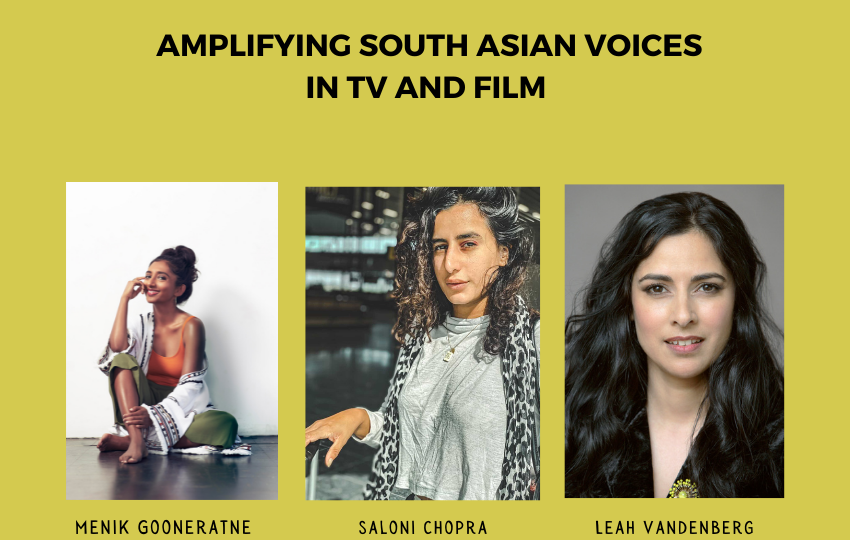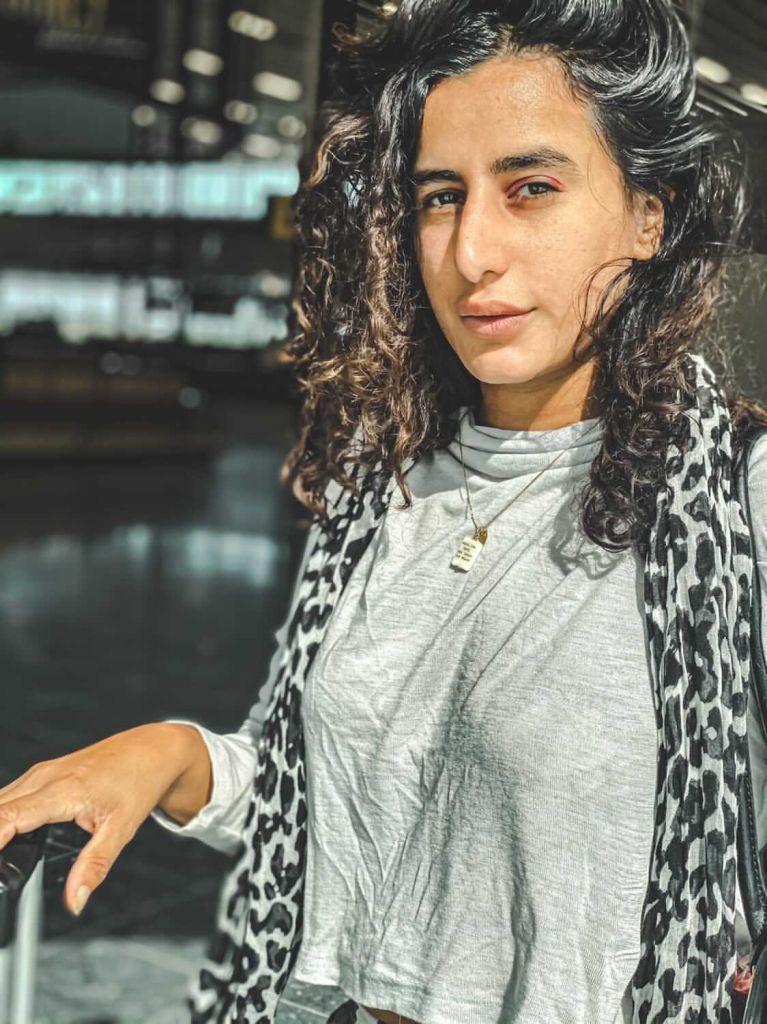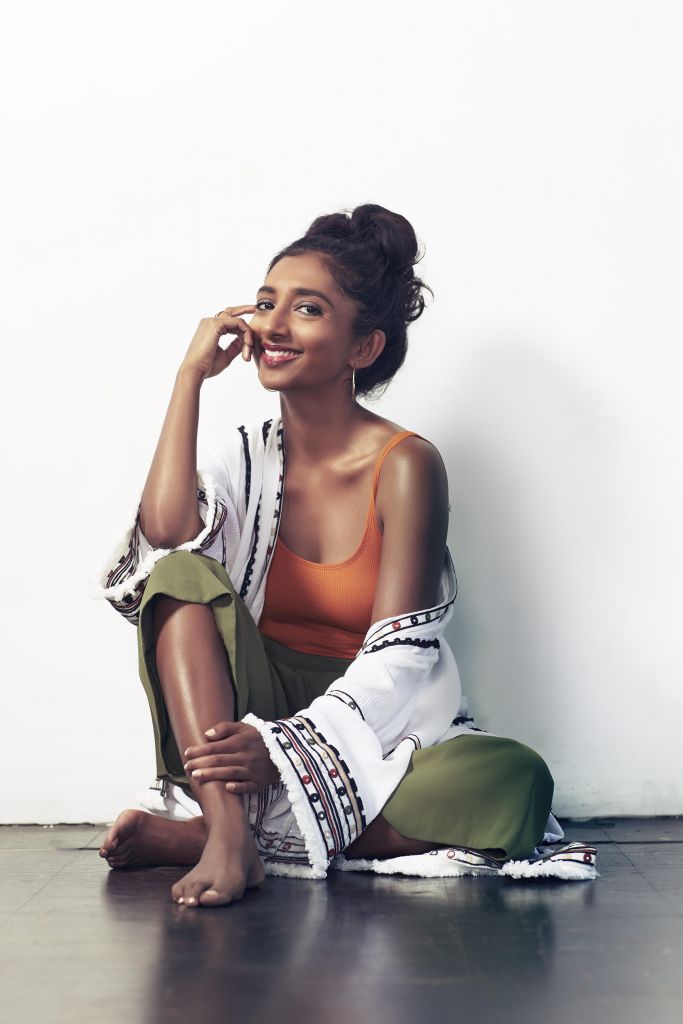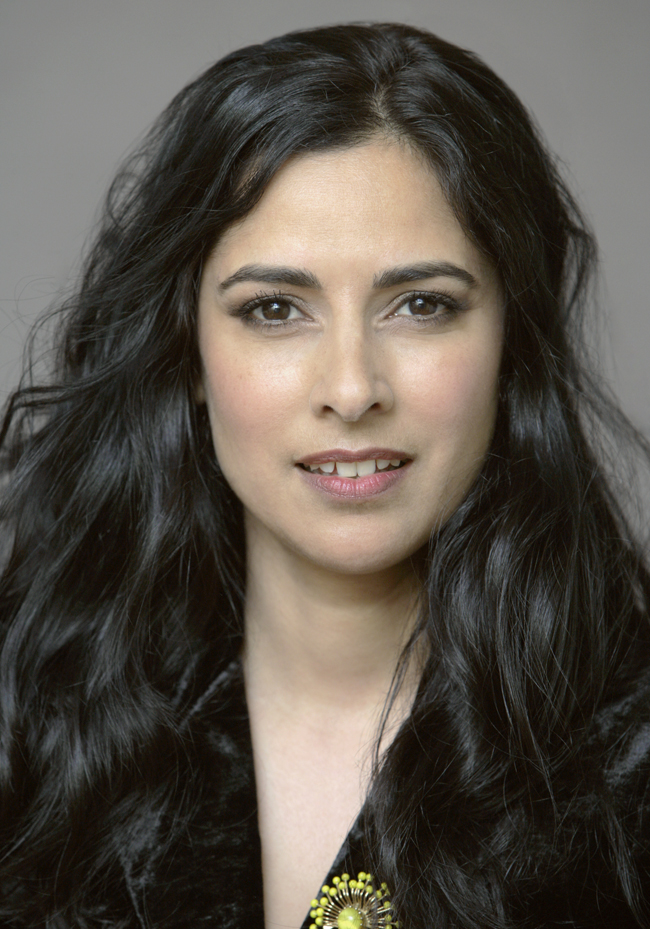
What we see in popular media often holds a mirror to society. As the community around us evolves, it becomes even more essential for films and TV to reflect the changing dynamics of the socio-cultural composition of the society. However, one look at our TV screens, and it is not hard to tell that we still have a long way to go regarding South Asian representation in Western Media. Here in Australia, women are still bound by stereotypes and limited opportunities. In contrast, back in India, women still struggle to occupy more positions on film sets other than the eye candy accompanying the macho, testosterone-oozing ‘hero.’
At the Australian Digital Creative Festival’s third event, ‘Amplifying South Asian Voices through TV and Film,’ our panelists Saloni Chopra, Leah Vandenberg, and Menik Gooneratne – had some interesting insights to share with us about their experiences of working as actors, writers and more in India and Australia. The discussion, hosted by Daizy Maan, was engaging and perceptive, inviting an overwhelming response from the audience.

Saloni Chopra
Saloni started her acting career with a short film called Maya nominated for Cannes before she played the lead in MTV India’s critically acclaimed TV show, ‘Girls on Top.’ Her journey from being an assistant director to a struggling actor in Bollywood had its fair share of setbacks. Despite this, Saloni recently produced her own web series, ‘Waking up with Maggie’ and is a published author of Rescued by a Feminist: An Indian tale of equality and other myths. She also garnered appreciation and support for being publicly vocal about the sexism and misogyny she faced as an outsider in Bollywood.
Saloni spoke positively about how she can see a change in representation for women across the Film and TV industry in India. With the surge in online platforms, women are being given more opportunities to create authentic and true to life characters by screenwriting, directoring, and production behind the scenes. This has not only helped create amazing content but has helped to expand the table for other women entering the industry.
Now, having moved back to Australia during the pandemic, she has became aware of the stereotypes that she must highlight and play out, to even gain a step in the Australian industry. She is expected to fit into a stereotypical ‘Freida Pinto’ box, wherein as a brown actress, she is supposed to look and act a certain way that is considered stereotypically Indian and having green hair certainly doesn’t fit the bill. Her best piece of advice for up-and-coming actresses is to be versatile. As artists, one must be open to wearing multiple hats, not just that of an actor.

Menik Gooneratne
As an Australian actor of Sri Lankan descent, Menik understands that she has a greater responsibility to use her platform sensibly. She has not shied away from speaking up about the racist experiences she has faced on the sets of TV shows (like Neighbours), movies, and on social media.
Menik appreciated Australian TV giants like the ABC and SBS for providing more opportunities to multicultural actors, as they are paving the way for more varied content on screen. Outside this, her experiences shed light on some particularly surprising realities for diverse women in the industry.
She spoke about her experience as an actress in a well-known film where in one instance, she was expected to appear in a Saree and was left to change into one, with the assumption she knew how to drape it. Menik however had limited experience and was left with an extra (a supporting actress) for assistance. The fact that she was assumed to know how to drape a saree due to her skin colour was eye-opening. Another experience of cultural insensitivity was when Menik was given a spray-painted (originally Caucasian looking), now brown doll, which was meant to represent her baby. How horrifying!
Menik has observed that the industry in Australia is far too competitive for women of colour. They are made to feel that there is space for only one of them at the table. To combat this, she believes that we need to work together as an alliance. One where we inform our networks about opportunities that may be suited to them. We are stronger when we celebrate our differences.

Leah Vandenberg
Leah’s experience in the Film and TV industry has been as an Australian/Indian actor, screenwriter, theatre artist and voice over artist in Australia. Her portfolio is extensive with some of the biggest names like The Letdown, Jack Irish, The Hunting and Play School, and yet she has been denied equal access to opportunities despite over two decades of experience.
As a children’s presenter and writer on Play School Leah spoke about how important it is for children to feel represented, validated and included on screen in terms of culture, language and diversity. Leah spoke about how most of the diversity that we see nowadays on our TV screen is driven from funding requirements and that the key roles and protagonists are still more than often written with white actors in mind. There is a lack of realisation that society has evolved to be more multicultural and cosmopolitan. Not only that, but the brown characters are the ‘cushioning’ for the protagonist white characters. It is upsetting to know that women of colour still have to fight for credit and equal pay in the Australian media industry. She has actively advocated for more South Asian actors occupying positions on sets, even when it invited conflict.
‘Being inclusive is really about being gutsy’
Leah encourages young, aspiring actresses to not give up and to examine your ‘why’ and your intention for being in the industry as this will help you to continue and build resilience, despite the odds.
It’s time for South Asian women to take control of our narratives.
Do follow @australiansouthasiancentre for all the latest updates on the Australian Indian Digital Creative Festival.
Written by: Dishi Gahlowt & Tiara Rajesh

